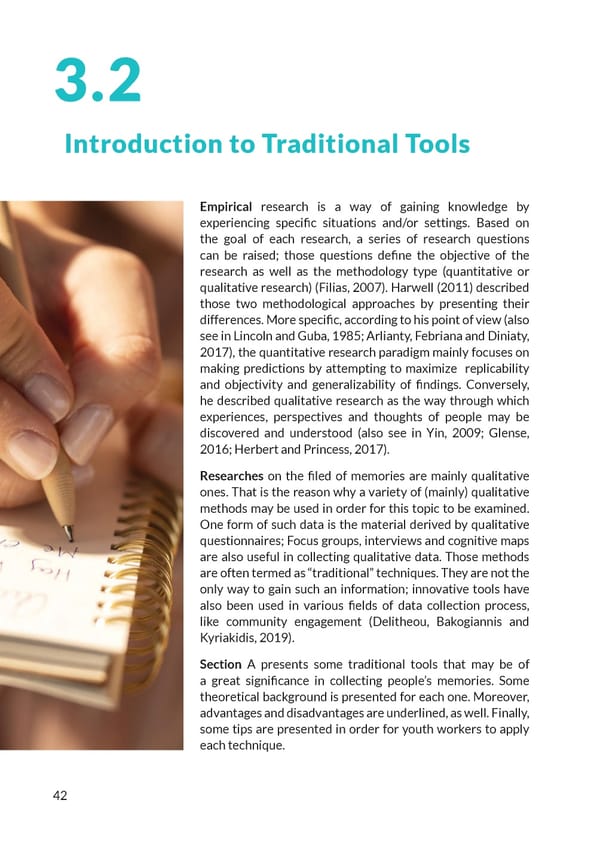3.2 Introduction to Traditional Tools Empirical research is a way of gaining knowledge by experiencing specific situations and/or settings. Based on the goal of each research, a series of research questions can be raised; those questions define the objective of the research as well as the methodology type (quantitative or qualitative research) (Filias, 2007). Harwell (2011) described those two methodological approaches by presenting their differences. More specific, according to his point of view (also see in Lincoln and Guba, 1985; Arlianty, Febriana and Diniaty, 2017), the quantitative research paradigm mainly focuses on making predictions by attempting to maximize replicability and objectivity and generalizability of findings. Conversely, he described qualitative research as the way through which experiences, perspectives and thoughts of people may be discovered and understood (also see in Yin, 2009; Glense, 2016; Herbert and Princess, 2017). Researches on the filed of memories are mainly qualitative ones. That is the reason why a variety of (mainly) qualitative methods may be used in order for this topic to be examined. One form of such data is the material derived by qualitative questionnaires; Focus groups, interviews and cognitive maps are also useful in collecting qualitative data. Those methods are often termed as “traditional” techniques. They are not the only way to gain such an information; innovative tools have also been used in various fields of data collection process, like community engagement (Delitheou, Bakogiannis and Kyriakidis, 2019). Section A presents some traditional tools that may be of a great significance in collecting people’s memories. Some theoretical background is presented for each one. Moreover, advantages and disadvantages are underlined, as well. Finally, some tips are presented in order for youth workers to apply each technique. 42
 MemoryHandbook new Page 41 Page 43
MemoryHandbook new Page 41 Page 43